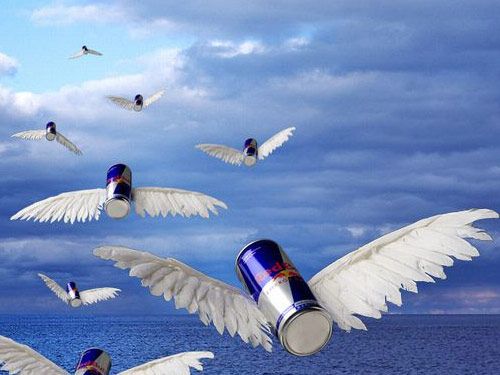New publications
Energy drinks are no more effective than coffee
Last reviewed: 01.07.2025

All iLive content is medically reviewed or fact checked to ensure as much factual accuracy as possible.
We have strict sourcing guidelines and only link to reputable media sites, academic research institutions and, whenever possible, medically peer reviewed studies. Note that the numbers in parentheses ([1], [2], etc.) are clickable links to these studies.
If you feel that any of our content is inaccurate, out-of-date, or otherwise questionable, please select it and press Ctrl + Enter.
Energy drinks have become famous for their “winging effect” and have quickly gained people’s trust, firmly establishing themselves on supermarket shelves. Cans of energy drinks can often be seen in the hands of young people, who drink them in anticipation of that very winging effect. But what is the actual effect of energy drinks and do they really carry the “energy of nature” as the manufacturers claim?

Surely many have heard that such drinks contain guarana and ginseng, which, due to their natural and organic power, have an invigorating effect and stimulate activity.
Read also: Caffeine: Dispelling the myths
However, according to a new study by scientists, the only effective ingredient in drinks like Redbull is caffeine.
A study published in the journal Nutrition found that there is no evidence to suggest that energy drink ingredients such as taurine, plant extracts of ginseng and guarana, and cocoa alkaloids enhance performance and efficiency, as previously thought.
New research by scientists casts doubt on the stimulating effect of these components. Experts say that the main stimulant and "inspirer" is a shock dose of caffeine.
Experts reviewed dozens of studies that examined the effects of ingredients both separately and with caffeine.
With the exception of some stimulating effects from guarana extract and high levels of glucose, which ensures rapid absorption of the components into the blood, experts have not found any compelling evidence that energy drinks act as stimulants on the human body due to their components.
Read also: 7 unexpected products containing caffeine
The only effective stimulant is a dose of caffeine, which provides an increase in physical and cognitive activity.
A study conducted by scientists this year found that energy drinks contain fourteen times more caffeine than any other soft drink.
In addition, experts warn that drinking such drinks by children can lead to excess weight gain, because the amount of calories received from the drink exceeds the activity of children, which would help to use up these calories.
High levels of caffeine are a hidden danger in high-energy drinks. With 14 times the caffeine in other soft drinks, the stimulant effect of caffeine can negatively affect the heart, cause seizures, behavioral disorders, and pose a risk of developing diabetes.
Doctors warn about the dangers of consuming energy drinks, as well as so-called sports drinks, especially for children.
"It's better to drink plain water and exercise less so you don't have to resort to stimulants like these," says Holly Benjamin, a professor at the University of Chicago and lead author of the report.
 [ 1 ]
[ 1 ]
